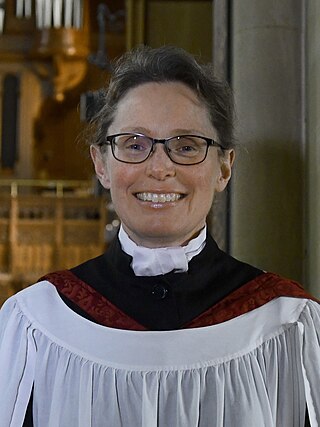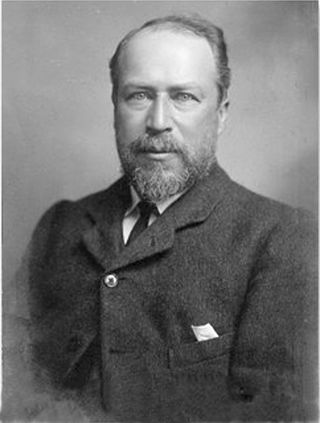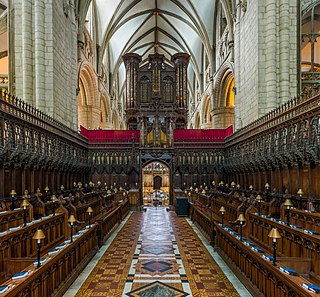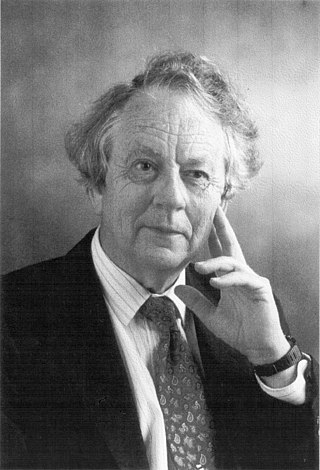
Richard Hey Lloyd (25 June 1933 – 24 April 2021) was a British organist and composer.

Richard Hey Lloyd (25 June 1933 – 24 April 2021) was a British organist and composer.
Richard Lloyd was born near Stockport, Cheshire, the younger of two children of Charles Yates Lloyd, an accountant, and his wife Ann Lloyd (née Hey). He was a chorister of Lichfield Cathedral (1942–47) and was educated at Rugby School (1947–51) where he held a music scholarship. He studied at Jesus College, Cambridge, where he was an organ scholar (1952–55). His teachers included Peter Le Huray, Philip Radcliffe and Patrick Hadley. He took the Music Tripos and held the Cambridge degree of MA as well as the FRCO and ARCM diploma.
After National Service he was organist and choirmaster at SHAPE near Paris. From 1957 to 1966 he was assistant organist of Salisbury Cathedral under Christopher Dearnley. In 1966 he was appointed Organist and Master of the Choristers of Hereford Cathedral. He was chief conductor at the Hereford Three Choirs Festival in 1967, 1970 and 1973. In 1974 he moved to Durham on his appointment as Organist and Master of the Choristers of Durham Cathedral. In 1985 he became deputy headmaster of Salisbury Cathedral School. Ill health forced his early retirement in 1988.
In later life Lloyd resided in Leominster, Herefordshire. After retiring, he divided his time between examining (he was an examiner for the ABRSM for 44 years) and composing. Other titles and positions which he held were Mem. Council, RCO, 1974–93. FRSA, and Hon FGCM 2006. [1] [2] [3] [4] [5] [6]
"Lloyd devoted much of his life to composition and his distinctive choral music can be heard regularly at services all over the world." [7] "Composing was always a central part of his musical life; he produced around 600 compositions and arrangements, many of which were written during his time in Durham. He has been an inspiration to many musicians, writing accessible, beautifully crafted music of very high quality for both parish and cathedral choirs." [3] According to Gramophone (magazine), Richard Lloyd's music “stands out as some of the most rewarding church music of our time”. [8] In 2010 he received a Fellowship (FRSCM) of the Royal School of Church Music.
He died in Hereford on 24 April 2021 after a short illness and is survived by his wife Teresa Morwenna (née Willmott, whom he married in 1962) and four daughters.
The Church Music of Herbert Howells, Address given at the Annual General Meeting of The Church Music Society, 16 June 1982 by Richard Lloyd [18]
Priory Records is a record company in the UK founded in 1980, and devoted mostly to church music and organ music. Important projects have included the complete Psalms sung by cathedral choirs to Anglican chant, all of the Magnificat and Nunc dimittis settings by Herbert Howells, the "British Church Composer Series", the "Choral and Music from English Cathedrals", the "Music for Evensong" and, more recently, all the hymns in the complete New English Hymnal Series. There are also three discs of the Communion Service settings of Stanford and four further discs featuring settings of the Te Deum and Jubilate.
Herbert Whitton Sumsion was an English musician who was organist of Gloucester Cathedral from 1928 to 1967. Through his leadership role with the Three Choirs Festival, Sumsion maintained close associations with major figures in England's 20th-century musical renaissance, including Edward Elgar, Herbert Howells, Gerald Finzi, and Ralph Vaughan Williams. Although Sumsion is known primarily as a cathedral musician, his professional career spanned more than 60 years and encompassed composing, conducting, performing, accompanying, and teaching. His compositions include works for choir and organ, as well as lesser-known chamber and orchestral works.
Peter John Hurford OBE was a British organist and composer.
David John Briggs is an English organist and composer.

Sir Alfred Herbert Brewer was an English composer and organist. As organist of Gloucester Cathedral from 1896 until his death, he contributed a good deal to the Three Choirs Festival for 30 years.

Hugh Blair was an English musician, composer and organist.
John Lawrence Kelsall was a British composer, conductor and lecturer.
Philip John Moore is an English composer and organist.
Harvey Grace (1874–1944) was an English musician: a composer, conductor, editor and teacher, best known for the 26 year period he worked as editor at The Musical Times.
The Southern Cathedrals Festival is a five-day music festival held in rotation among the English cathedrals of Chichester, Winchester and Salisbury, in the penultimate week of July. The festival was restored in 1960 after initial attempts to create the annual occasion were followed by 28 years without it. The respective director of music acts as festival director when it is that cathedral's turn to host the event.

Edwin Percy Hallam (1887–1957) was an English cathedral organist, who served in St Edmundsbury Cathedral for twenty years from 1937 to 1957. Before serving at the Cathedral, he was organist of St Mary's Church, Bury St Edmunds for eighteen years from 1909 to 1937. He was affectionately known as 'Porky' despite being quite lean.

Sarah Elizabeth Arwen MacDonald is a Canadian-born organist, conductor, and composer, living in the United Kingdom, and currently holds the positions of Fellow and Director of Music at Selwyn College, Cambridge, and Director of the girl choristers at Ely Cathedral. She has been at Selwyn since 1999, and is the first woman to hold such a post in an Oxbridge Chapel. In 2018 MacDonald was given the honorary award of Associate of the Royal School of Church Music (ARSCM).
Alan J. Wilson, is a British composer of church music.

Charles Harford Lloyd was an English composer who became a well-known organist in his time.
Frederick William Wadely OBE FRCO was an English organist and composer.

Philip Armes was an English organist, notably holding posts at Rochester, Chichester and Durham Cathedral.

The Magnificat and Nunc dimittis for St Paul's Cathedral, also known as the St Paul's Service, is a setting by the English composer Herbert Howells of the Magnificat and Nunc dimittis for the Anglican service of Evensong. Scored for four-part choir and organ, it was written in 1950 for St Paul's Cathedral in London.

The Magnificat and Nunc dimittis for Gloucester Cathedral, also known as the Gloucester Service, is a setting by the English composer Herbert Howells of the Magnificat and Nunc dimittis for the Anglican service of Evensong. Scored for four-part choir and organ, it was written in 1946 for Gloucester Cathedral. It was published by Novello in 1947.

Gerald Mills Hendrie,, is an English scholar, composer, organist, pianist and harpsichordist.